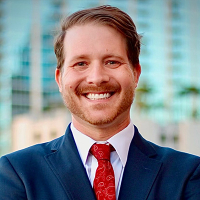Durant Collection Lawyer, Florida
Sponsored Law Firm
-
 x
x

Click For More Info:
-
Wakhisi-Douglas LLC
100 S. Ashley Drive Suite 600 Tampa, FL 33602» view mapBankruptcy & Debt We Fight Back and Win in Court
We’ve won hundreds of cases, and we’ve developed a reputation for resolving complex disputes favorably for our clients.
800-978-8941
James W. Elliott
✓ VERIFIEDBankruptcy & Debt, Foreclosure, Collection, Credit & Debt, Reorganization
James Elliott is a native of Tampa, Florida. After graduating from Tampa Jesuit High School, he attended the University of Florida where he received a... (more)
Frank H Kerney
✓ VERIFIEDCredit & Debt, Collection, Accident & Injury, Bankruptcy & Debt
Frank Kerney III is a managing partner of The Consumer Lawyers. Frank grew up in central New Jersey before moving to Florida to attend the University ... (more)
Zala Ladislaus Forizs
Complex Litigation, State Appellate Practice, Collection, Bankruptcy & Debt
Status: In Good Standing Licensed: 54 Years
Kristi Neher Davisson
US Courts, Whistleblower, Collection, Personal Injury
Status: In Good Standing Licensed: 26 Years
E. Blake Paul
Collection, Personal Injury, Trusts, Land Use & Zoning, Estate
Status: In Good Standing
Ray C. Lopez
Collection, Criminal, DUI-DWI, Domestic Violence & Neglect
Status: In Good Standing Licensed: 34 Years
Nathan Allan Wheatley
Litigation, Public Utilities, Collection, Bankruptcy
Status: In Good Standing Licensed: 25 Years
Eva Mary Donohue
Lawsuit, Immigration, Collection, Bankruptcy
Status: In Good Standing Licensed: 22 Years
James Salvatore Giardina
Bankruptcy & Debt, Collection, Credit & Debt, Consumer Protection, Accident & Injury
Status: In Good Standing
 Chuck Douglas Tampa, FL
Chuck Douglas Tampa, FL Practice AreasExpertise
Practice AreasExpertise


